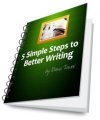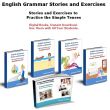The difference between
"can", "could", "might", "should" and "ought"
by Wily
(Ecuador)
What is the difference between can, could, might should, and ought? The difference depends on the context and situation. I will try to give you a very general idea, regarding the difference in meaning.
Could: is very similar to can and can be used in most cases but it has a slightly different meaning or sense to it. “Could” refers to something that is not always possible. For example, If you ask someone "Can you lend me $20?" You are focusing on their ability to lend you the money. If you replace can for could and ask "Could you lend me $20?" It makes us think or feel like it is less likely to happen.
Might: is often used to talk about the chance (or possibility) that something will happen or is happening. "You might not understand everything that I write in English but I hope so".
Should: is dealing with obligation and deduction. When it is right to do something we say, you should do it. "We should drink lots of water and eat lots of fruit". In terms of deduction we can use should when we assume something according to what we know. If my Mum went out an hour ago, I might deduce that she should be home soon.
Ought: is used the same way as should, but it is less popular in American English. In Canada, for example, we usually use "should".
I hope that answers your question. You should try to used those words in context to get more comfortable using the words. You can email me again if you need more help.
Would you like an answer without waiting?
You can answer all your grammar questions yourself and in the comfort of your own home?How? It is simple. Get a copy of
Practical English Usage
I can honestly say that this grammar reference guide is the best I have ever used and I use it daily answering all of your grammar questions; including this question.
Why wait for my answer? When the answer is just a page number away?
Get this book now and start solving your grammar questions!
Click on the image above to buy the book safely and quickly through Amazon.ca
Have a wonderful day everyone!
- Diana :)
Comments for The difference between
|
||
|
||
|
||
Still looking? Search the site for exactly what you need using the site search box below.
Happy exploring!
Discover these Amazing ESL Materials!
 |
 |
 |
 |
 |
 |
 |
 |
 |
 |